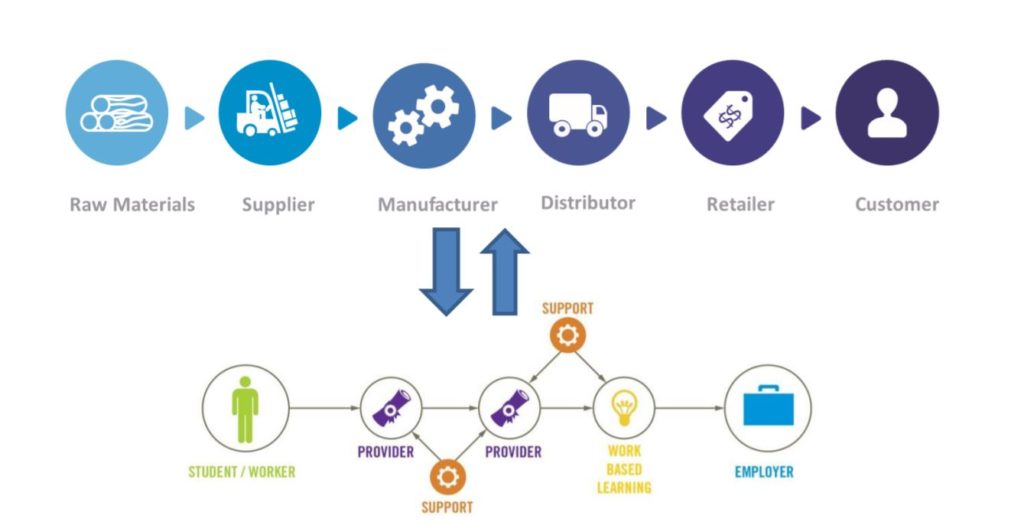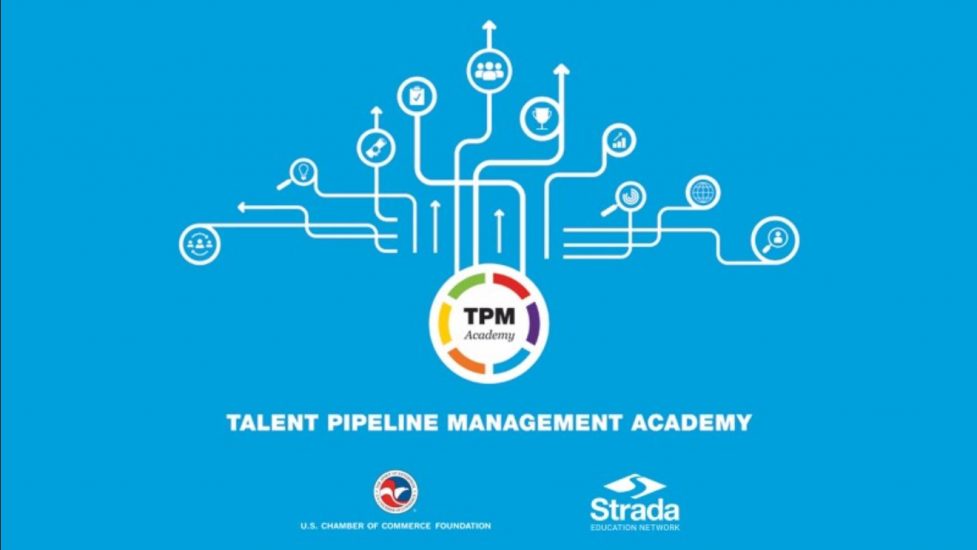Businesses feeling the pinch of the skills gap can take charge of workforce development with a comprehensive strategic plan unveiled Monday by the U.S. Chamber of Commerce Foundation and the Strada Education Network’s Talent Pipeline Management Academy.
The TPM Academy issued its Talent Pipeline Curriculum, a six-part program for building the infrastructure necessary to connect industry needs with skilled workers produced by colleges and career technical educators. The initiative seeks to close the skills gap, which is affecting small businesses and America’s leading industries alike.
These employer-led solutions are based on what the TPM calls a “supply chain management” model of workforce analysis. By utilizing available employment data, businesses can identify their workforce needs and share this information with educators, who then can create demand-driven curricula to match them.
The TPM Academy explains its rationale behind this approach: “The idea is that if employers play an expanded leadership role as “end-customers” of a talent supply chain, they will be more effective at organizing performance-driven partnerships with responsive preferred education and workforce training providers.”

We are seeing the initial fruits of this increased collaboration at the regional level, such as in Los Angeles and Orange County, California, and the new TPM Academy guidelines are helping spread the message of skills-based training nationwide.
RELATED STORY: LAEDC CCW releases its inaugural report on workforce development
The plan is broken down into six strategies for creating a talent pipeline between educators and employers. You can download them at the following links:
- Plan and Implement an Employer Collaborative
- Engage in Demand Planning
- Communicate Competency and Credentialing Requirements
- Analyze Talent Flows
- Build Talent Supply Chains
- Continuous Improvement
The Jacksonville (Illinois) Regional Economic Development Corporation played a part in crafting the TPM Academy curriculum and according to a Jacksonville Journal-Courier report, JREDC Director Paul Ellis remarked that the program is “scalable” to fit the needs of both small towns and large cities. In this mostly manufacturing-based economic region of west-central Illinois, Ellis said that there are already businesses on board and engaged with the first strategy: organizing together to identify skill gaps.
Whether working independently or as a member of the peer-to-peer TPM Academy network, employers now have a six-month plan to implement. While the TPM Academy stresses that the plan is not a “silver bullet” that will transform skills deserts into the next Silicon Valley, it is another foundational resource for a workforce development strategy with proven success.
Join the Conversation: Take a look at the strategies and tell us on our Facebook page how your community can use this plan to boost workforce development.











